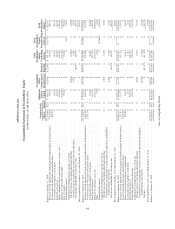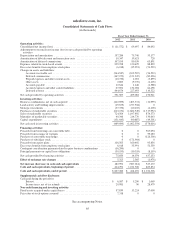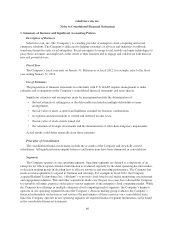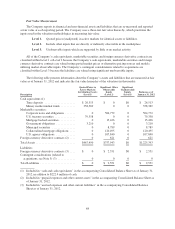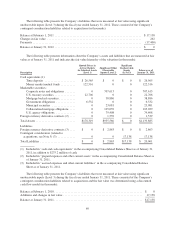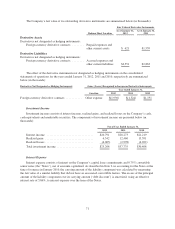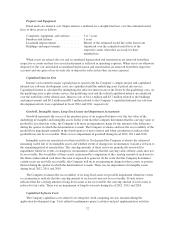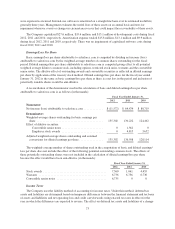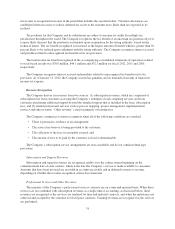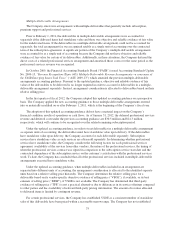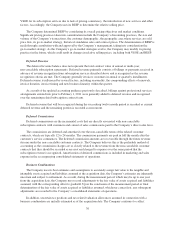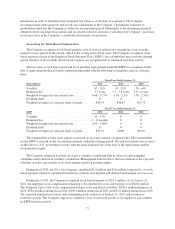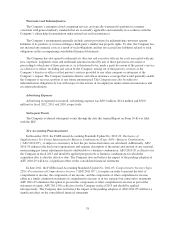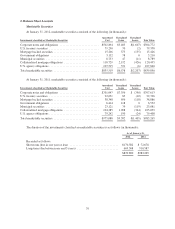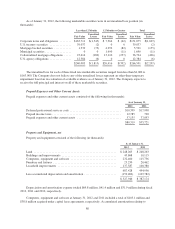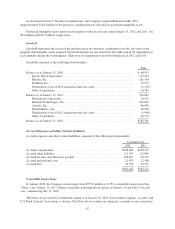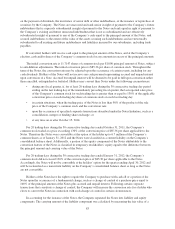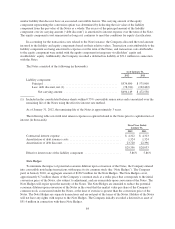Salesforce.com 2012 Annual Report Download - page 78
Download and view the complete annual report
Please find page 78 of the 2012 Salesforce.com annual report below. You can navigate through the pages in the report by either clicking on the pages listed below, or by using the keyword search tool below to find specific information within the annual report.in tax rates is recognized in income in the period that includes the enactment date. Valuation allowances are
established when necessary to reduce deferred tax assets to the amounts more likely than not expected to be
realized.
Tax positions for the Company and its subsidiaries are subject to income tax audits by multiple tax
jurisdictions throughout the world. The Company recognizes the tax benefit of an uncertain tax position only if it
is more likely than not that the position is sustainable upon examination by the taxing authority, based on the
technical merits. The tax benefit recognized is measured as the largest amount of benefit which is greater than 50
percent likely to be realized upon settlement with the taxing authority. The Company recognizes interest accrued
and penalties related to unrecognized tax benefits in its tax provision.
The total income tax benefit recognized in the accompanying consolidated statements of operations related
to stock-based awards was $76.0 million, $44.1 million and $32.1 million for fiscal 2012, 2011 and 2010,
respectively.
The Company recognizes interest accrued and penalties related to unrecognized tax benefits in its tax
provision. As of January 31, 2012, the Company accrued no penalties and an immaterial amount of interest in
income tax expense.
Revenue Recognition
The Company derives its revenues from two sources: (1) subscription revenues, which are comprised of
subscription fees from customers accessing the Company’s enterprise cloud computing services and from
customers purchasing additional support beyond the standard support that is included in the basic subscription
fees; and (2) related professional services such as process mapping, project management, implementation
services and other revenue. “Other revenue” consists primarily of training fees.
The Company commences revenue recognition when all of the following conditions are satisfied:
• There is persuasive evidence of an arrangement;
• The service has been or is being provided to the customer;
• The collection of the fees is reasonably assured; and
• The amount of fees to be paid by the customer is fixed or determinable.
The Company’s subscription service arrangements are non-cancelable and do not contain refund-type
provisions.
Subscription and Support Revenues
Subscription and support revenues are recognized ratably over the contract terms beginning on the
commencement date of each contract, which is the date the Company’s service is made available to customers.
Amounts that have been invoiced are recorded in accounts receivable and in deferred revenue or revenue,
depending on whether the revenue recognition criteria have been met.
Professional Services and Other Revenues
The majority of the Company’s professional services contracts are on a time and material basis. When these
services are not combined with subscription revenues as a single unit of accounting, as discussed below, these
revenues are recognized as the services are rendered for time and material contracts, and when the milestones are
achieved and accepted by the customer for fixed price contracts. Training revenues are recognized as the services
are performed.
74


